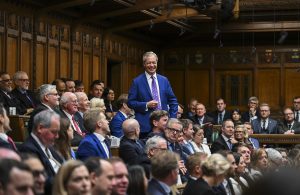The Digital Markets, Competition and Consumers (DMCC) Bill aims to protect consumers and promote fair competition in the digital marketplace.[1] The Competition and Markets Authority (CMA) highlights the need for this legislation to address the unique challenges posed by digital markets, ensuring fair competition, consumer protection, and innovation in the rapidly evolving digital economy. [2]
What does the DMCC Bill do?
The Bill addresses issues like fake reviews, subscription traps, and unfair practices. It introduces new rules and powers to ensure that tech companies don’t dominate the market and harm smaller businesses. It also focuses on giving consumers more control and transparency when shopping online. The Bill establishes a special unit to oversee digital markets and enforce the rules. Overall, the goal is to create a level playing field, encourage innovation, and make sure consumers are treated fairly when using digital services.
The Digital Markets, Competition and Consumers (DMCC) Bill introduces a range of provisions and reforms, including:
Digital Markets Provisions:
- The Bill creates a dedicated unit within the Competition and Markets Authority (CMA) called the Digital Markets Unit (DMU). The DMU’s primary role is to oversee and regulate digital markets and tech companies with substantial market power. [3]
- The DMU has the authority to designate certain tech companies as having Strategic Market Status based on their market dominance and influence. This designation subjects these companies to additional regulatory scrutiny and obligations.
- Once designated with SMS, the DMU can impose specific conduct requirements on tech companies to address competition issues and prevent unfair practices.
- The Bill grants the DMU the power to impose fines on tech companies that fail to comply with the conduct requirements set by the regulator.
Competition Law Reforms:
- The Bill enhances the CMA’s power to impose higher fines on companies engaged in anti-competitive behaviour, providing a stronger deterrent against violations.
- The Bill updates the merger jurisdiction thresholds to enable the CMA to review and intervene in mergers that could potentially harm competition in digital markets. [4]
- The Bill strengthens the CMA’s investigative powers, allowing it to obtain the necessary evidence and information to assess and address competition concerns in digital markets.
Consumer Protection Provisions:
- The Bill empowers the CMA to directly enforce consumer protection laws, reducing the need for lengthy court processes and enabling faster action against breaches. [5]
- The Bill allows the CMA to award compensation to consumers affected by breaches of consumer protection laws, providing remedies for those harmed by unfair practices.
- The Bill introduces the authority for the CMA to impose fines on businesses that do not comply with consumer rights regulations, creating stronger incentives for compliance.
Transparency and Accountability:
- The Bill includes provisions to ensure transparency and accountability in the regulatory process. The CMA will report to Parliament and the public on its activities and decisions, engaging with stakeholders and seeking feedback.
Subscriptions and Automatic Renewals:
- The DMCC Bill aims to crack down on subscription traps and automatic renewals that make it difficult for consumers to exit contracts. It introduces measures to protect consumers from being locked into recurring payments without their explicit consent.
- The Bill proposes requiring traders to send reminder notices before automatic renewals take place. This measure aims to ensure that consumers are informed in advance and have the opportunity to consider whether they want to continue the subscription.
Fake Reviews and Misleading Practices
- The DMCC Bill addresses the issue of fake reviews and misleading practices in digital markets. By regulating the behaviour of businesses and platforms, the bill seeks to improve consumer trust and confidence in online information.
- The Bill empowers the CMA to directly enforce consumer protection laws and impose penalties for breaches. This measure aims to deter businesses from engaging in deceptive practices and provides consumers with recourse in case of harm.
The DMCC Bill is currently under consideration in the UK Parliament. It has completed the Committee stage in the House of Commons and will proceed to the Report stage, where further amendments may be proposed. The Bill’s progress will continue into the next session of Parliament, starting on 4 September 2023, through a Carry-over Motion.[6] The exact timeline for implementation will depend on parliamentary approval, secondary legislation, and the publication of guidance.[7]
BREVIA CONSULTING PROVIDES STRAIGHTFORWARD POLITICAL ADVICE AND SUPPORT TO BUSINESSES AND ORGANISATIONS
Discover how Brevia can help you and your organisation by contacting the Brevia Team on 020 7091 1650 or contact@brevia.co.uk
[1] House of Commons, Digital Markets, Competition and Consumers Bill 2022-23, May 2023, Link
[2] Competition and Markets Authority, CMA submission to the Digital Markets, Competition and Consumers Bill Committee, 27 June 2023, Link
[3] Competition and Markets Authority, New bill to stamp out unfair practices and promote competition in digital markets, April 2023, Link
[4] Competition and Markets Authority, New bill to stamp out unfair practices and promote competition in digital markets, April 2023, Link
[5]Competition and Markets Authority, New bill to stamp out unfair practices and promote competition in digital markets, April 2023, Link
[6] House of Commons, Digital Markets, Competition and Consumers Bill 2022-23, May 2023, Link
[7] House of Commons, Digital Markets, Competition and Consumers Bill, July 2023, Link



